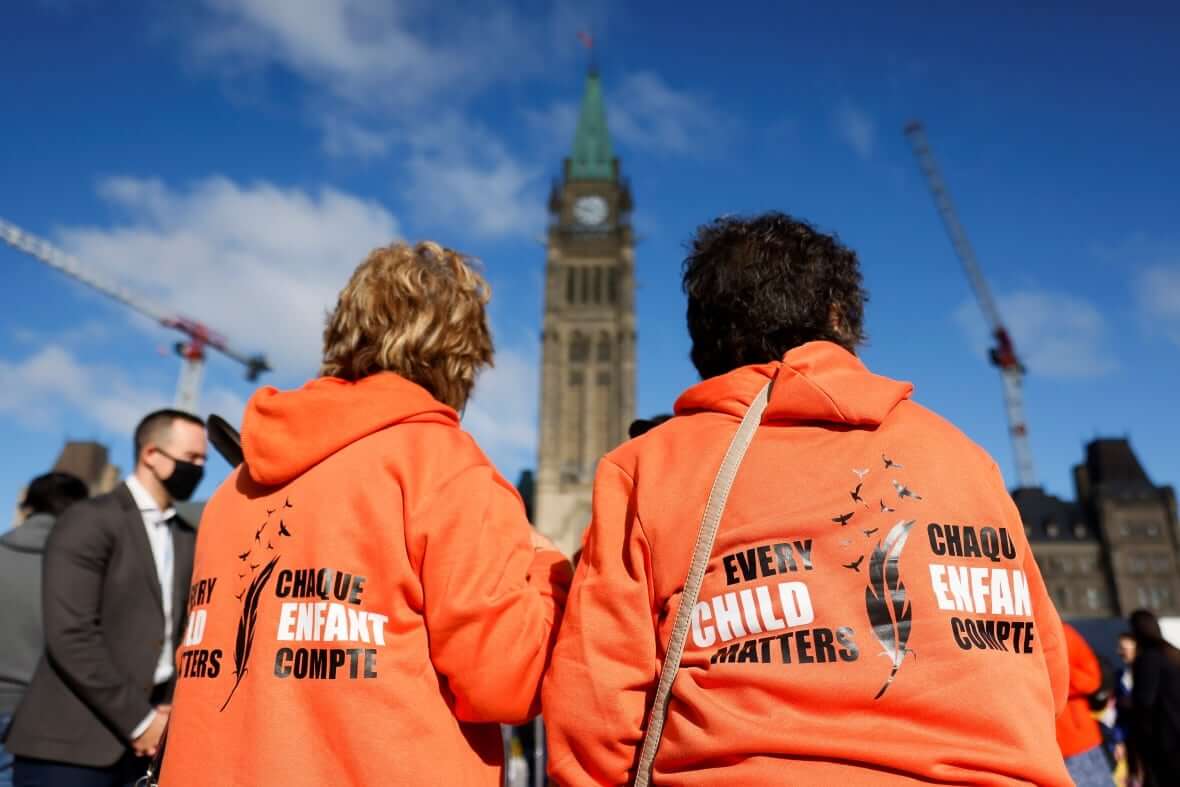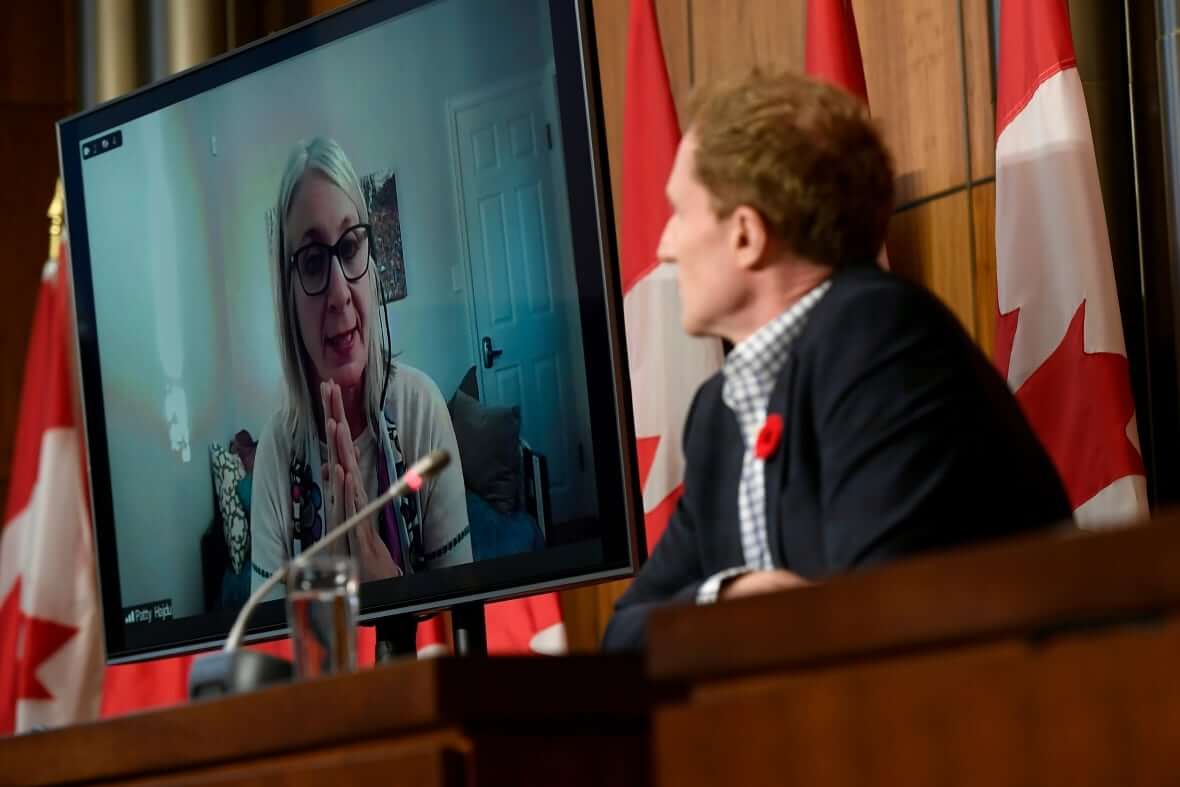Ottawa releases details of landmark $40B First Nations child welfare agreement

The federal government will today announce details of a $40 billion dollar agreement-in-principle to reform the on-reserve child welfare system and compensate the First Nations children who were part of it.
The First Nations Child and Family Caring Society, the Assembly of First Nations and lawyers for several related class action lawsuits completed negotiations with the federal government late the night of Dec. 31, after nine weeks of intense talks.
The non-binding agreement sets aside $20 billion for compensation and $20 billion for long-term reform of the on-reserve child welfare system.
Cindy Blackstock, executive director of the First Nations Child and Family Caring Society, told CBC News she hopes the agreement will provide a “roadmap” to satisfy the Canadian Human Rights Tribunal (CHRT) order to end discrimination against First Nations children.
“No child’s life is better today than it was yesterday because of these words on paper,” Blackstock said. “We have to see the government actually deliver this stuff.”
The agreement must be approved by the CHRT and the Federal Court before it is finalized.
The CHRT ordered Canada to compensate any child who has been in the care of the on-reserve child welfare system at any point between Jan. 1, 2006, and whenever the tribunal decides discrimination against First Nations kids has ceased.

If approved, the agreement could end a 15-year legal battle and provide compensation for tens of thousands of people.
A final agreement is expected to be approved in late 2022.
How it started
The First Nations Child and Family Caring Society and the Assembly of First Nations filed a complaint under the Canadian Human Rights Act in 2007 alleging the federal government discriminated against First Nations children by underfunding the on-reserve child welfare system and by not complying with Jordan’s Principle — a policy that states the needs of a First Nations child requiring a government service take precedence over jurisdictional disputes over who pays for it.
In 2016, the Canadian Human Rights Tribunal found the federal government discriminated against First Nations children and said Canada’s actions led to “trauma and harm to the highest degree, causing pain and suffering.”
The tribunal ordered Ottawa to pay $40,000 — the maximum allowed under the Canadian Human Rights Act — to each child affected by the on-reserve child welfare system, along with their primary guardians, as long as the children weren’t taken into foster care because of abuse.

It also directed the federal government to pay $40,000 each to all First Nations children, along with their primary guardians, who were denied services or forced to leave home to access services covered by Jordan’s Principle from Dec. 12, 2007 — when the House of Commons adopted the policy — to Nov. 2, 2017, when the tribunal ordered Canada to change its definition of Jordan’s Principle and review previously denied requests.
“This $40,000 is not a lot of money for a lost childhood, but it’s some recognition to them and hopefully it provides a little foothold for them to have a brighter future,” Blackstock said.
The order also stated compensation must be paid to the estates of deceased individuals who would have been eligible for compensation.
In the fall of 2019, the federal government submitted an application to the Federal Court to set aside the tribunal’s order and dismiss the claim for compensation. That decision was widely condemned by First Nations leaders, the NDP, the Green Party and human rights organizations like Amnesty International.
The government said at the time that it did not oppose compensation. It argued that the tribunal did not have jurisdiction to order specific compensation amounts in the manner of a class action lawsuit.
“The issue here is not whether the discrimination … existed … Canada has accepted that result,” said Sony Perron, the associate deputy minister of Indigenous Services Canada (ISC), in an affidavit filed with the Federal Court.
“The issue … is that the tribunal has issued a sweeping decision that will significantly impact ISC (Indigenous Services Canada) and Crown-Indigenous relations and that raises important questions of public policy that only cabinet can decide.”
The government also took issue with the fact that the order would award the same amount of money to someone who spent one day in care as it would to someone who spent an entire childhood there.
In September 2021, the Federal Court dismissed the government’s judicial review application.
In his ruling — released on the eve of the first National Day of Truth and Reconciliation — Justice Paul Favel said negotiations could help realize the goal of reconciliation and would be “the preferred outcome for both Indigenous people and Canada.”
One month later, the government announced it intended to appeal the decision, but would put litigation on hold as it entered negotiations mediated by former senator Murray Sinclair, who chaired the Truth and Reconciliation Commission.
While the talks resulted in an agreement-in-principle, the federal government will not drop its Federal Court appeal until the agreement is approved.








Redes Sociais - Comentários